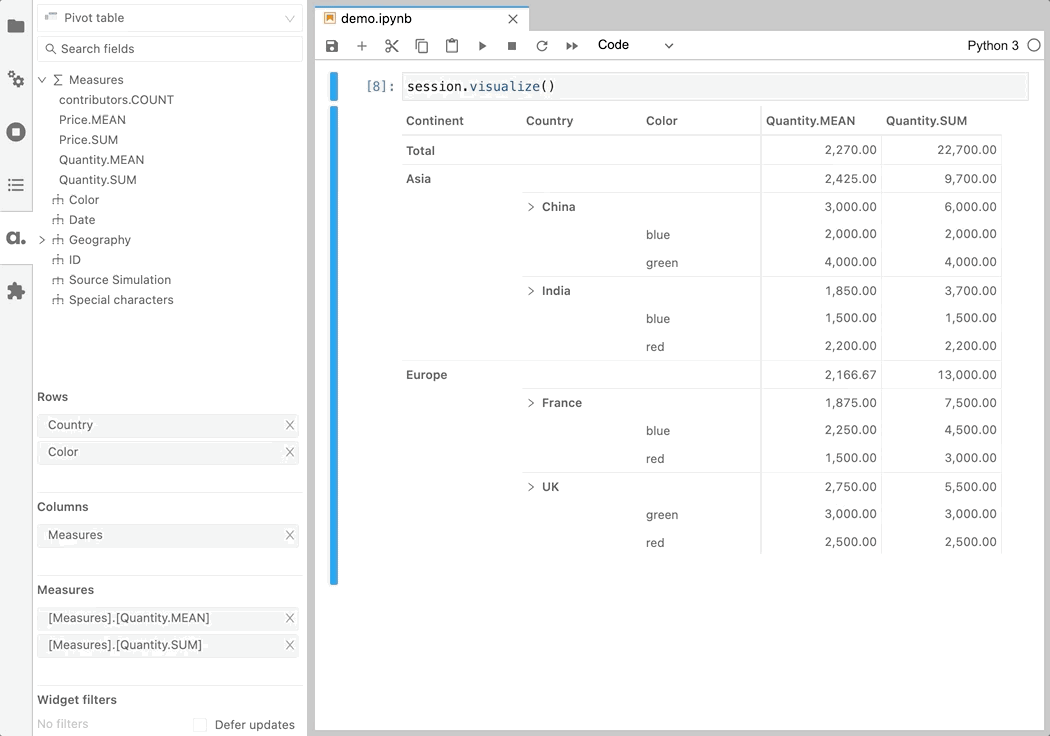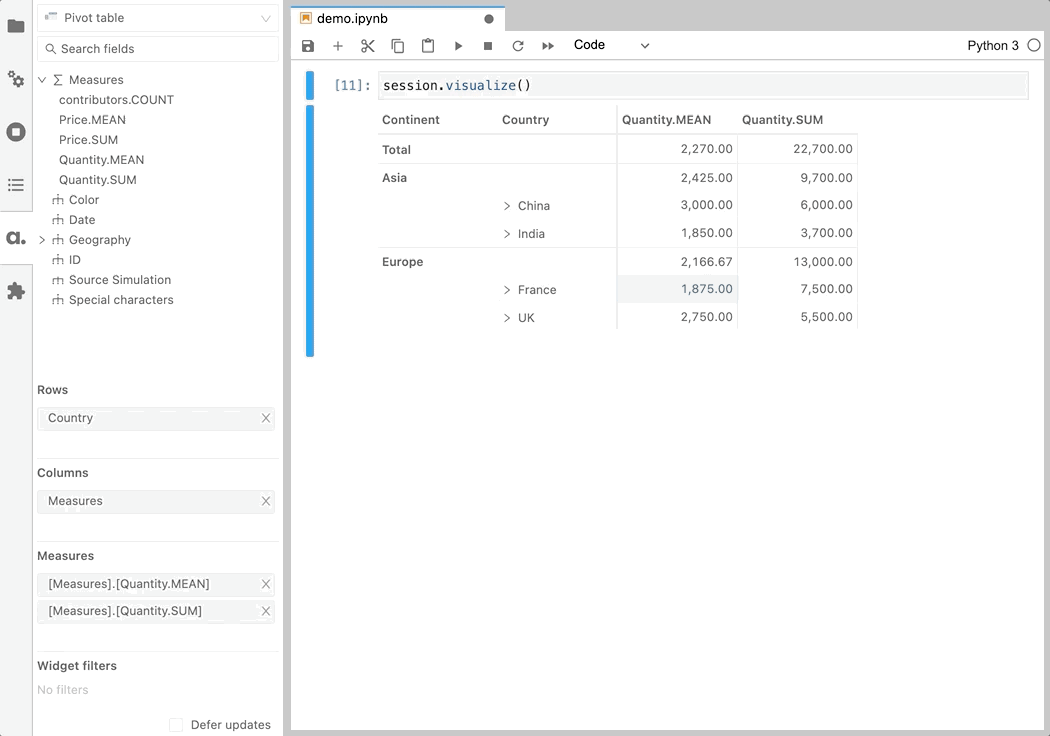0.5.3 (2021-04-16)¶
Added¶
Ability to define an aggregated measure by combining multiple store columns. For example:
atoti.agg.sum( - m["Quantity.SUM"] * m["Unit price.SUM"], + store["Quantity"] * store["Unit price"], # More efficient scope=atoti.scope.origin(l["Sale ID"]) )
session.Session.securityto configure roles and restrictions on a running session.Glob pattern support in
session.Session.read_parquet()andstore.Store.load_parquet()methods.config.create_logging_config()to set the path of the file where the session logs are written.
User interface¶
Tree table widget.

The tree table is like a pivot table where the row headers are squashed into a single column displayed as a tree.¶
The Drillthrough context menu item already available in the app is also supported in JupyterLab.

Triggering the context menu of tables or charts from a selection with a single element allows to create a drillthrough widget that can be used to know the facts contributing to this aggregate.¶
The Convert to Widget Below JupyterLab command is also available on DataFrames returned by
session.Session.query_mdx()andquery.session.QuerySession.query_mdx().Query editor drawer in the app to manipulate the MDX query of the selected widget.
Changed¶
DocSearch has been integrated to the docs to provide faster and better search results (#168).
The
atoti-pluspackage has been restructured from a standalone package that could be installed instead of theatotipackage to a plugin that can be installed alongside theatotipackage.Performance of
store.Store.append()has been improved (#255).Stores are no longer automatically partitioned.
Fixed¶
Deprecated¶
Creating roles with
config.create_role().Creating Basic authentication users with
config.create_basic_user().Creating Kerberos users with
config.create_kerberos_user().Displaying part of the logs with
session.Session.logs_tail().!tail -n 10 $session.logs_pathcan be used instead in Jupyter on Unix for example.